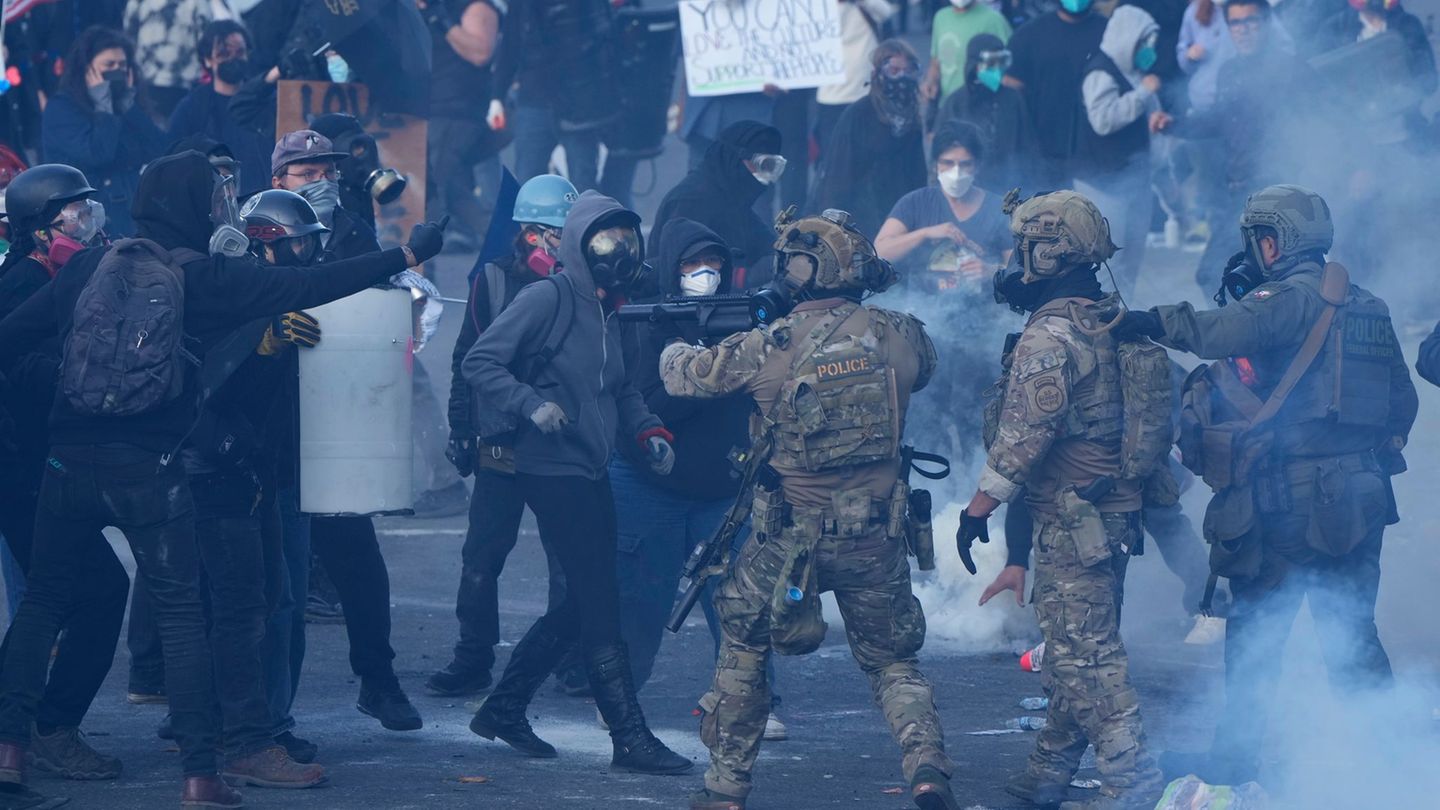The Nord Stream 2 gas pipeline has been causing a massive dispute between the USA and Germany for years. Both sides have now reached an agreement. Ukraine is at the center – but it is unhappy with the deal.
After years of dispute, the USA and Germany have achieved a breakthrough in the conflict over the German-Russian Nord Stream 2 pipeline. Top State Department diplomat Victoria Nuland announced at a congressional hearing that an agreement had been reached. The breakthrough was confirmed in Berlin. This should also help to facilitate the desired restart in German-American relations after the difficult years under the former US President Donald Trump.
The almost completed Baltic Sea pipeline is supposed to bring Russian gas to Germany – bypassing the Ukraine, which is dependent on the income from the gas transit. The USA had massively criticized Nord Stream 2 for years, but now want to forego further sanctions.
Sanctions not excluded
Nuland said that in the agreement Germany committed itself to measures “should Russia try to use energy as a weapon or to commit further aggressive acts against Ukraine”. That includes possible sanctions. Support for an extension of the gas transit agreement through Ukraine, which expires in 2024, for a further ten years has also been agreed. Work will also be done to reduce Ukraine’s dependence on Russian gas and transit revenues.
In Berlin it was said that the US would not impose any further sanctions on Nord Stream 2. In the event that Russia uses energy as a “political weapon”, Germany has committed itself to taking national measures and working towards sanctions at EU level – in the energy sector or other economically relevant fields.
Furthermore, Germany and the USA have agreed to set up a “green fund Ukraine” with start-up financing of 150 million euros from Germany. The aim is to achieve a leverage effect with the participation of private investors totaling one billion US dollars. It is also about hydrogen projects, energy efficiency and renewable energy. Ukraine wants to become more independent of Russian gas. Germany has promised technical support in connecting the Ukrainian power grid to the European power grid.
Bid: Nord Stream 2 “bad deal”
Nuland stressed that the administration of US President Joe Biden continues to believe that Nord Stream 2 is “a bad deal” that will increase Europe’s dependence on Russian energy. “This is a bad situation and a bad pipeline, but we have to help protect Ukraine and I feel that with this agreement we have taken some important steps in that direction.”
However, criticism came from the Ukraine. From the office of President Volodymyr Selenskyj it was said: “The decision on Nord Stream 2 cannot be made behind the back of all those who threaten the project in real terms.” That could only be clarified at a personal meeting of Zelenskyj with US President Joe Biden. The White House announced that Biden’s meeting with Zelenskyi was planned for the end of August.
Praise came from Moscow: “This agreement gives us the opportunity to finish the construction of Nord Stream 2 in peace and to start operations completely,” said Vladimir Jabarow of the Federation Council – the upper house of the Russian parliament – of the Interfax agency. At the same time, he set conditions for a possible extension of the transit agreement through Ukraine: Ukraine should prove itself as a “constructive partner”. Under “normal conditions” nobody would put pressure on Ukraine.
As the operating company explained in mid-July, the Baltic Sea pipeline should be completed in a few weeks. “We are assuming that the construction work will be finished by the end of August,” said the CEO of Nord Stream 2 AG, Matthias Warnig, to the “Handelsblatt”. 98 percent of the pipeline has now been completed. The aim is to put the natural gas pipeline into operation this year.
Cross-party resistance in USA
In the USA there has been cross-party resistance to Nord Stream 2 for years. The agreement is therefore likely to meet with strong resistance in Congress. There, many Republicans reject the project and demand sanctions, as do some of Biden’s Democrats. Critics see the pipeline as a geopolitical project by Russia that threatens Europe’s energy security. They also complain that the pipeline could harm Ukraine. Kiev is dependent on billions in revenue from Russian gas transit. Proponents of the pipeline, on the other hand, accuse the USA of only wanting to sell their own, more expensive gas in Europe.
Jane Stock is a technology author, who has written for 24 Hours World. She writes about the latest in technology news and trends, and is always on the lookout for new and innovative ways to improve his audience’s experience.




